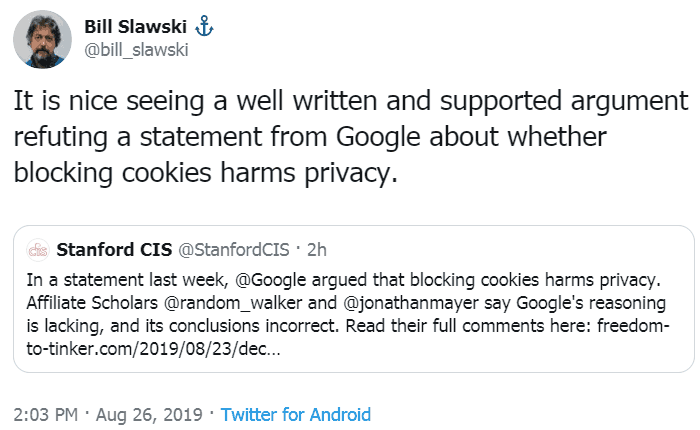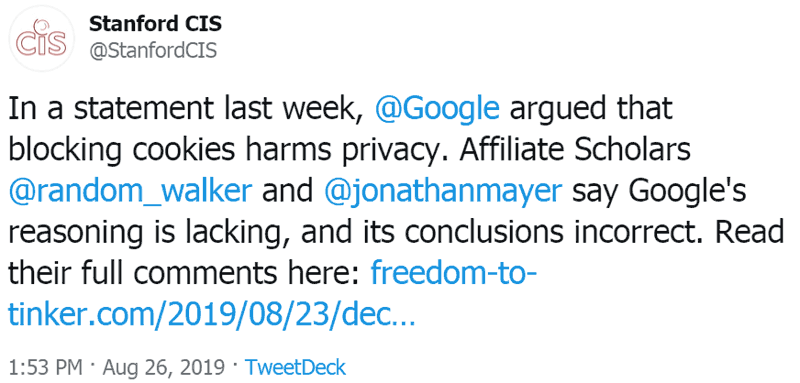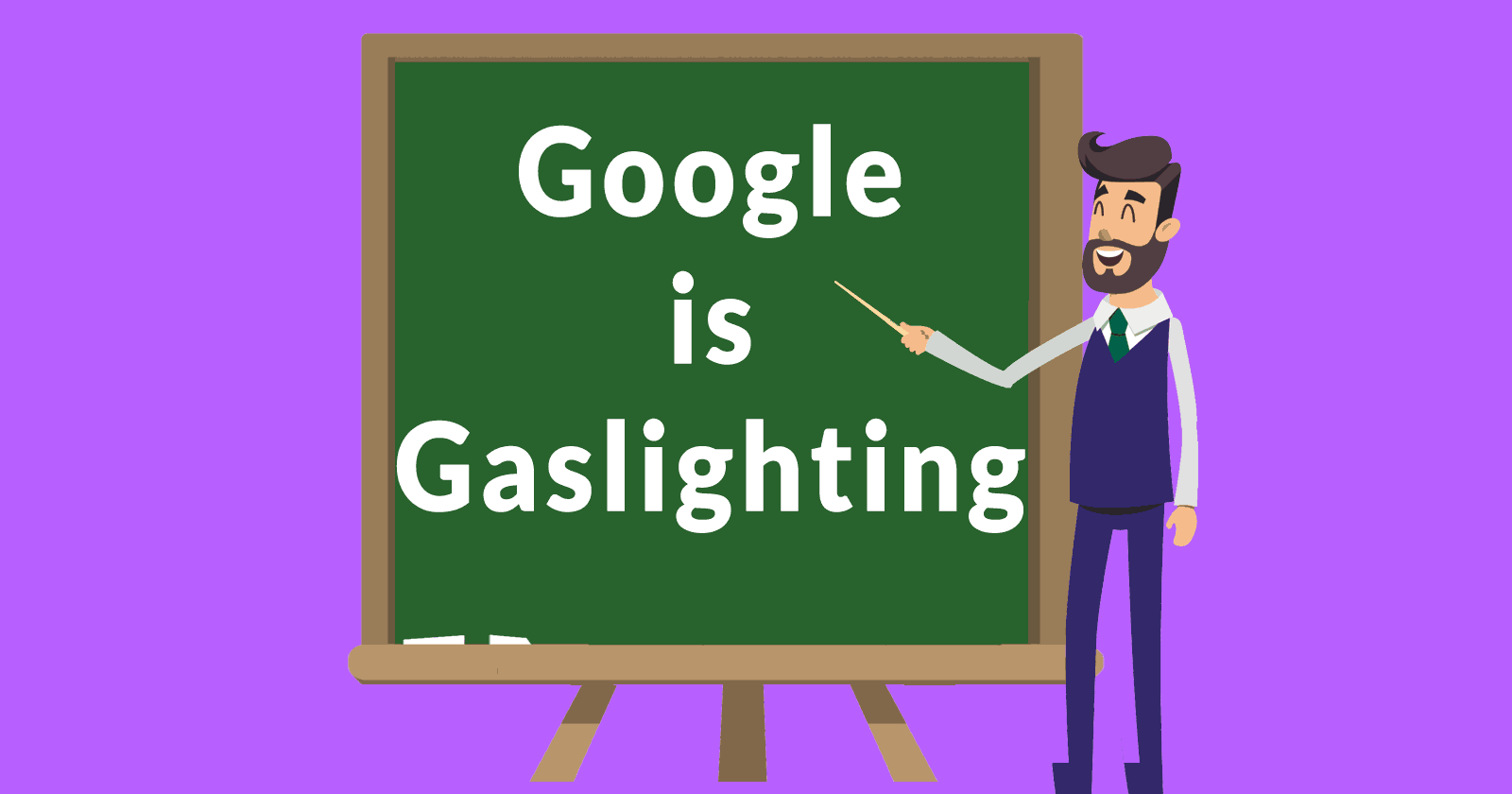Google published a blog post alleged to suggest that blocking cookies harms privacy. Two Stanford University Affiliate Scholars rebutted Google’s statements point by point and accused Google of gaslighting privacy.
PhD Researchers Accuse Google of Being Disingenuous
The two researchers, Jonathan Mayer and Arvind Narayanan authored a public rebuttal accusing Google of being “disingenuous” (insincere) about its stance on privacy.
Firefox recently accused Google and Chrome of a similar insincerity in its approach to privacy, asserting that Chrome’s privacy mode “does not prevent third-party tracking.”
The researchers offered these four arguments against Google Chrome:
“1) Cookie blocking does not undermine web privacy. Google’s claim to the contrary is privacy gaslighting.
2) There is little trustworthy evidence on the comparative value of tracking-based advertising.
3) Google has not devised an innovative way to balance privacy and advertising; it is latching onto prior approaches that it previously disclaimed as impractical.
4) Google is attempting a punt to the web standardization process, which will at best result in years of delay.”
Is Google Gaslighting About Privacy?
Gaslighting is defined as a psychological trick where a person is manipulated into doubting reasonable facts and observations.
The professors offered a powerful line by line rebuttal of Google’s statement. They alleged that Google is manipulating facts in order to make it appear that blocking cookies harms privacy.
For example, the researchers quoted this statement from Google:
“Technology that publishers and advertisers use to make advertising even more relevant to people is now being used far beyond its original design intent – to a point where some data practices don’t match up to user expectations for privacy.”
The researchers then rebutted it:
“If the benchmark is original design intent, let’s be clear: cookies were not supposed to enable third-party tracking, and browsers were supposed to block third-party cookies. We know this because the authors of the original cookie technical specification said so (RFC 2109, Section 4.3.5).
Similarly, if the benchmark is user privacy expectations, let’s be clear: study after study has demonstrated that users don’t understand and don’t want the pervasive web tracking that occurs today. “
As you can see, the researchers backed up their rebuttal with a link to research and authoritative documents to prove that their points had valid foundations.
SEO Community Is Aware of Privacy Controversy
Bill Slawski tweeted his approval of the rebuttal. He remarked how the rebuttal was well supported.
 “It is nice seeing a well written and supported argument refuting a statement from Google about whether blocking cookies harms privacy.”
“It is nice seeing a well written and supported argument refuting a statement from Google about whether blocking cookies harms privacy.”Stanford University Tweets Support for Researchers
The Stanford Center for Internet & Society tweeted about the article, letting the article speak for itself.
 In a statement last week, @Google argued that blocking cookies harms privacy. Affiliate Scholars
In a statement last week, @Google argued that blocking cookies harms privacy. Affiliate Scholars@random_walker and @jonathanmayer say Google’s reasoning is lacking, and its conclusions incorrect.
This About More than Privacy
This topic goes beyond the issue of privacy. The heart of the privacy discussion is how will Internet companies founded on Free earn back their investments?
The Internet was founded on ecommerce and selling display ads. However this model has evolved into a sophisticated surveillance model that enables marketers to target specific kinds of consumers, an ability that fetches a premium advertising price.
Monetizing information and services while keeping it free is what this is all about. Finding a solution that protects consumer privacy is the challenge.
Read the statement rebutting Google here:
Deconstructing Google’s Excuses on Tracking Protection
https://freedom-to-tinker.com/2019/08/23/deconstructing-googles-excuses-on-tracking-protection/





![AI Overviews: We Reverse-Engineered Them So You Don't Have To [+ What You Need To Do Next]](https://www.searchenginejournal.com/wp-content/uploads/2025/04/sidebar1x-455.png)